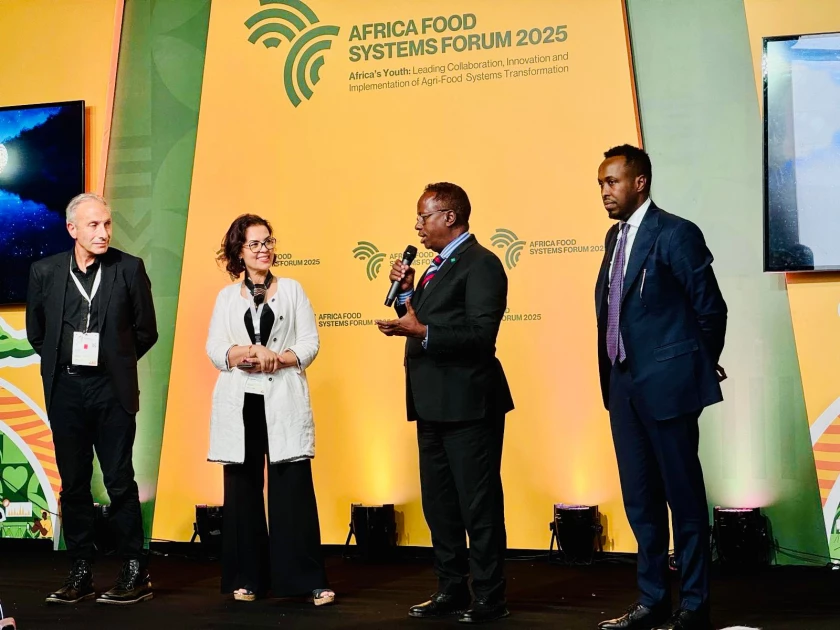Somalia eyes food system revolution amid mounting hunger crisis

Somalia's Minister of Agriculture and Irrigation Mohamed Abdi Hayir Maraye

Audio By Vocalize
Somalia is setting its sights on transforming its food systems, as the country grapples with an escalating hunger crisis.
According to the World Food Programme (WFP), the Horn of Africa nation is on the brink of widespread food insecurity due to a confluence of challenges — including recurring droughts, floods, high food prices, ongoing conflict, and declining agricultural yields.
“A total of 4.6 million people are facing Crisis levels of hunger,” WFP reported, citing data from the Integrated Food Security Phase Classification. “Additionally, 1.8 million children under the age of five are suffering from acute malnutrition.”
In response, Somalia's Ministry of Agriculture is turning to regional trade and strategic investments in food system transformation to reverse the trend.
Agriculture Minister Mohamed Abdi Hayir "Maareeye" emphasized the government’s commitment to modernizing the agriculture sector and positioning Somalia as a future regional food basket.
Speaking at the Africa Food Systems Forum 2025, Maareeye unveiled the Somalia Agri-Food Investment Partnership (SAIP) — a comprehensive Ksh.12.9 billion strategy aimed at enhancing food security and driving inclusive economic growth through targeted reforms and investments.
“Agriculture is at the heart of Somalia’s economic revival,” Maareeye said. “Our goal is to build a resilient, competitive, and climate-smart agricultural sector that can feed our nation, generate jobs, and contribute meaningfully to regional and global food systems.”
“SAIP blends public and private capital to de-risk investment, crowd in partners, and deliver climate-smart production, processing, and reliable offtak, so farmers see higher incomes and Somalia moves steadily toward nutrition security and export growth."
The SAIP initiative is designed to blend public and private capital, de-risk investments, and attract partners to support climate-smart production, agro-processing, and reliable offtake agreements — all intended to raise farmer incomes and boost nutrition and export potential.
The Ministry has identified six key value chains — maize, sesame, lime, sorghum, cowpea, and fodder — as central to achieving this transformation.
“This legacy program is our investment blueprint,” Maareeye explained. “It bridges policy and impact by delivering tangible results for farmers and rural communities, while opening Somalia up to responsible investment and international markets.”
He also underscored Somalia’s strategic geographic advantage and potential for regional integration.
“With one of the longest coastlines in Africa — over 3,000 kilometers along the Indian Ocean — Somalia is well-positioned to facilitate agricultural exports and tap into regional and global supply chains.”
Currently, Somalia faces an estimated annual food deficit of $2 billion, heavily relying on imports to meet domestic needs.
The SAIP initiative aims to gradually close this gap by enhancing local production and market systems.



Leave a Comment